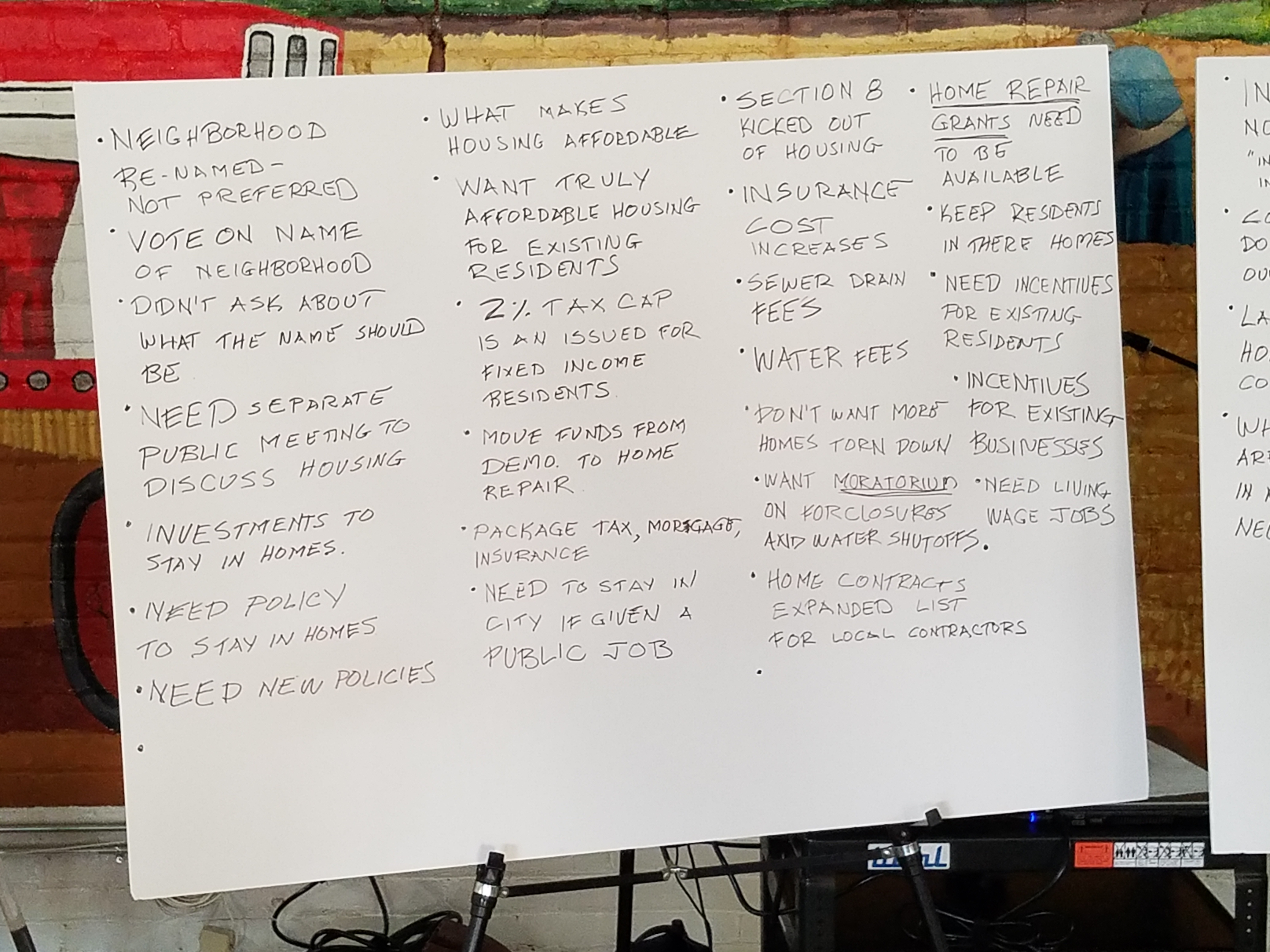
With the resurgence of activity and development occurring in the city of Detroit, a sense of excitement is brewing heavily. Developers are in bidding wars over vacant land for the next luxurious apartments that will fill the city’s skyline that will no doubt have perspective renters vying for a spot to call home.
Unfortunately, for those Detroiters who have called the city home and remained during some of the tougher times, are now the ones fighting to be recognized among in a city that is changing by the day.
Last Thursday I had the opportunity to attend the Planning and Development Department meeting for the Islandview Neighborhood workshop. During these workshops, the PDD allows residents to learn more about plans that underway for their community, as well as provide feedback or input for any upcoming development.
At this particular meeting, plans were revealed for Detroit’s next greenway, the Beltline, a former railroad that will begin at the Riverwalk and head north to the Gleaner’s Community Foodbank and beyond. The greenway definitely drew the attention of those in attendance, however many residents wanted to discuss something that was a little more important than the transformation of a former railroad.
Residents were more concern of the changes that are taking place in front of their very eyes instead of a new greenway. The issues that many residents raised were among the likes of foreclosure, high insurance rates, home affordability, and a multitude of others. There was a lady in attendance who was 78 years old and has lived in the same home for over 40 years.
Of her concerns were the rising property rates and the high number of foreclosures that has occurred in her neighborhood over the last couple of years. “How is it you’re building and giving away homes for small amounts all of these homes for people to move in, but at same time someone who has lived in their house for over 30 years falls behind on their mortgage and you’re ready to kick them out on the street? That’s not inclusion!” That’s a sentiment that has been shared by many Detroiters recently as new development has taken place in various locations of Detroit (downtown, Midtown, Corktown, the Villages etc.)
In my studies as a Urban Planning student, my studies taught me that the importance of doing what’s morally right for everyone. I think its safe to say, in Detroit, the logistics of Urban Planning has not always had people’s best interest, especially those of color.
I’m hopeful that the PDD staff that were present really take into account the thoughts, concerns, and ideas of those residents. After all, they were there when there wasn’t an interest in their community.

